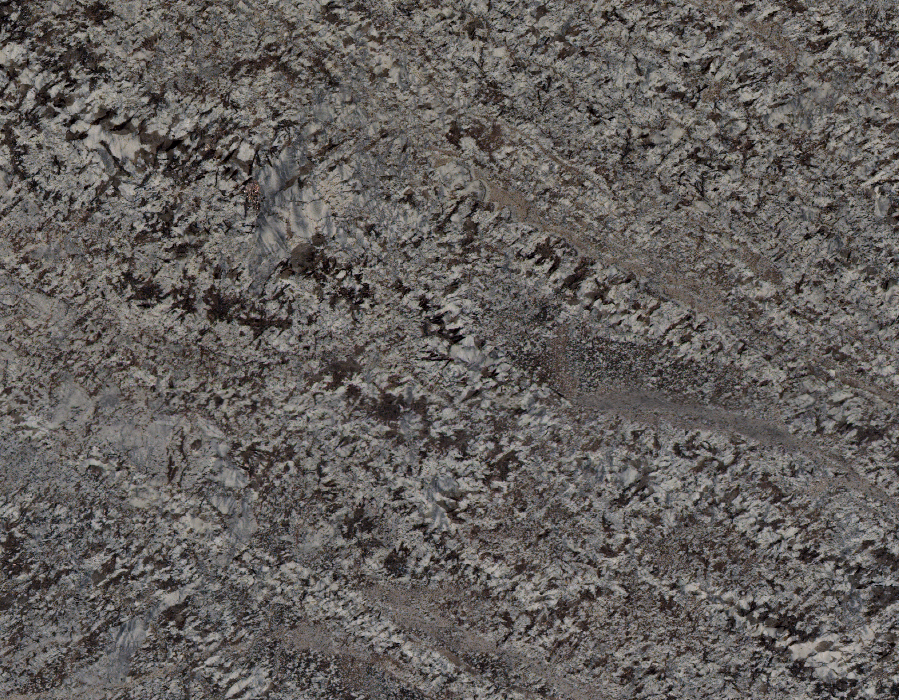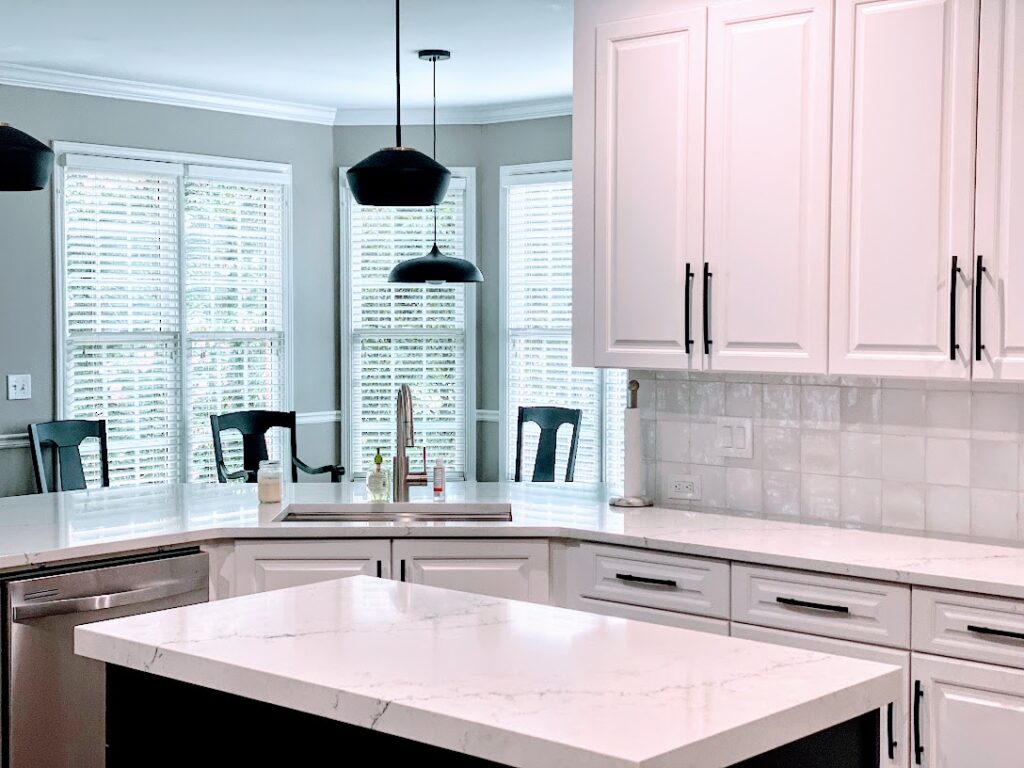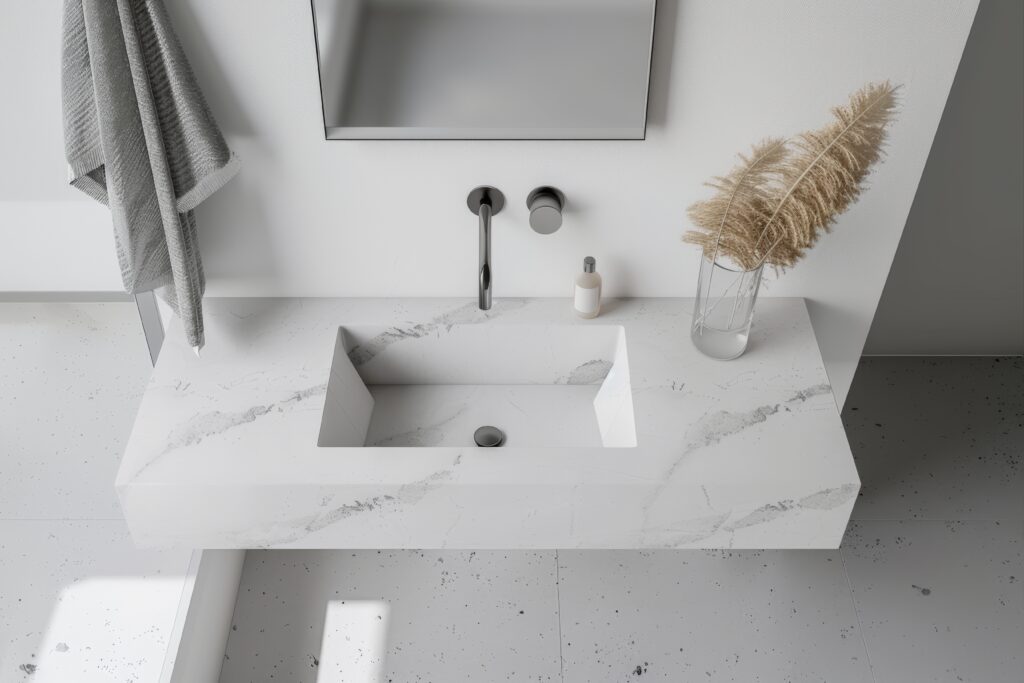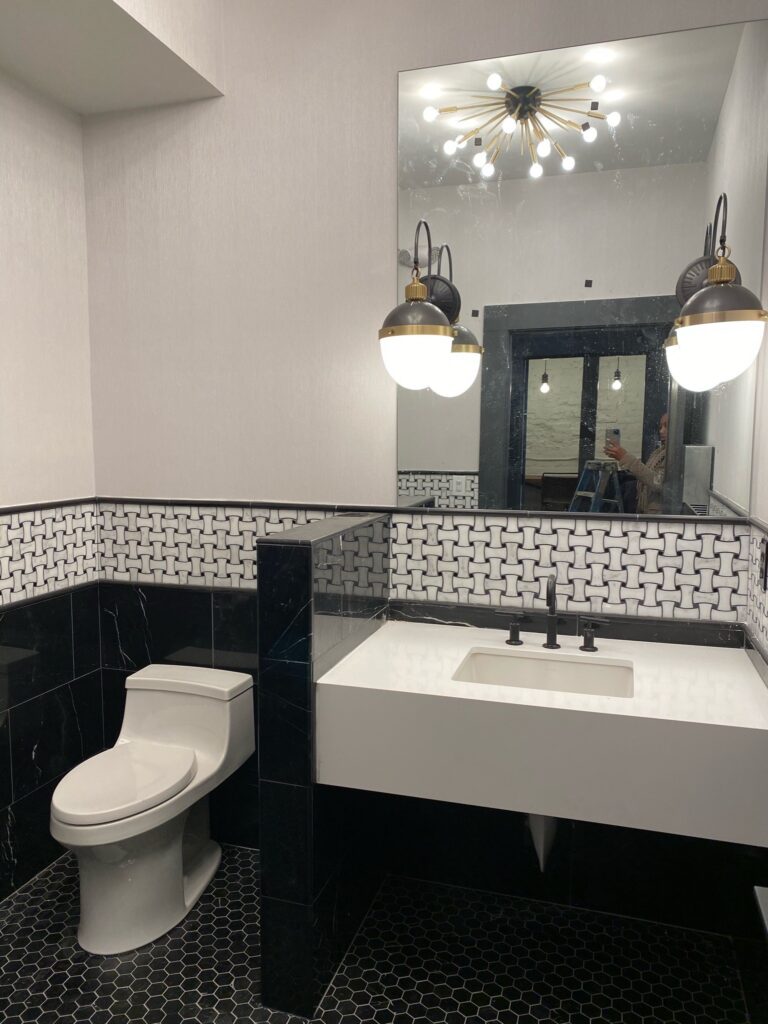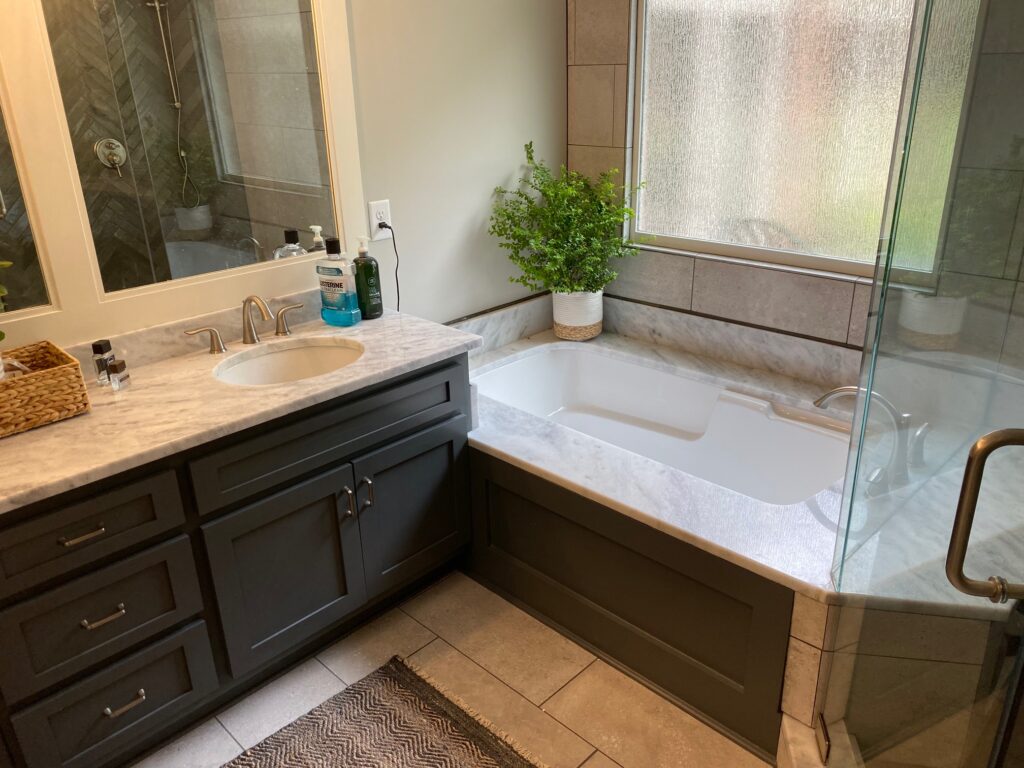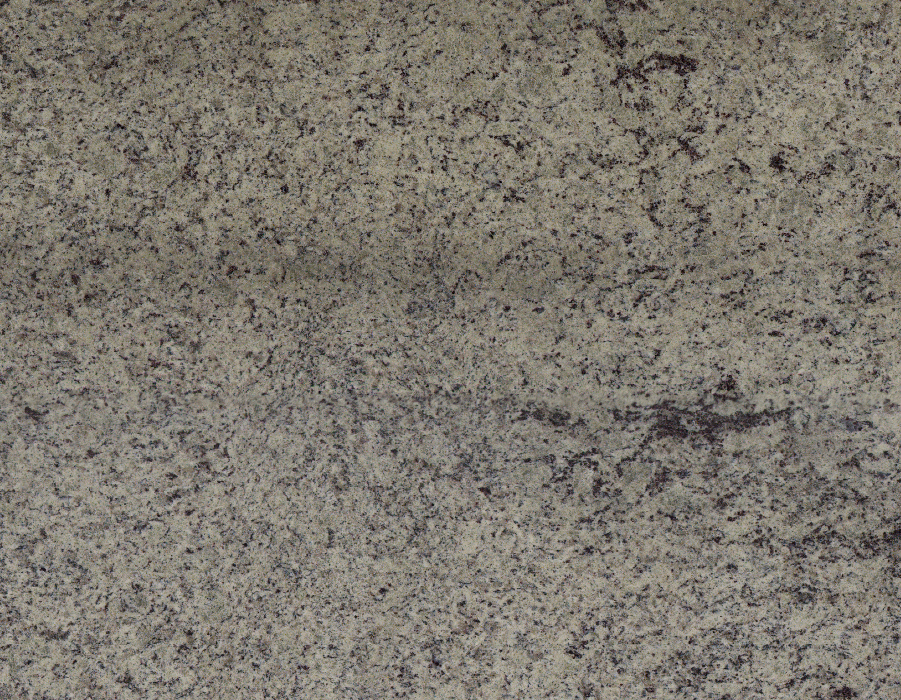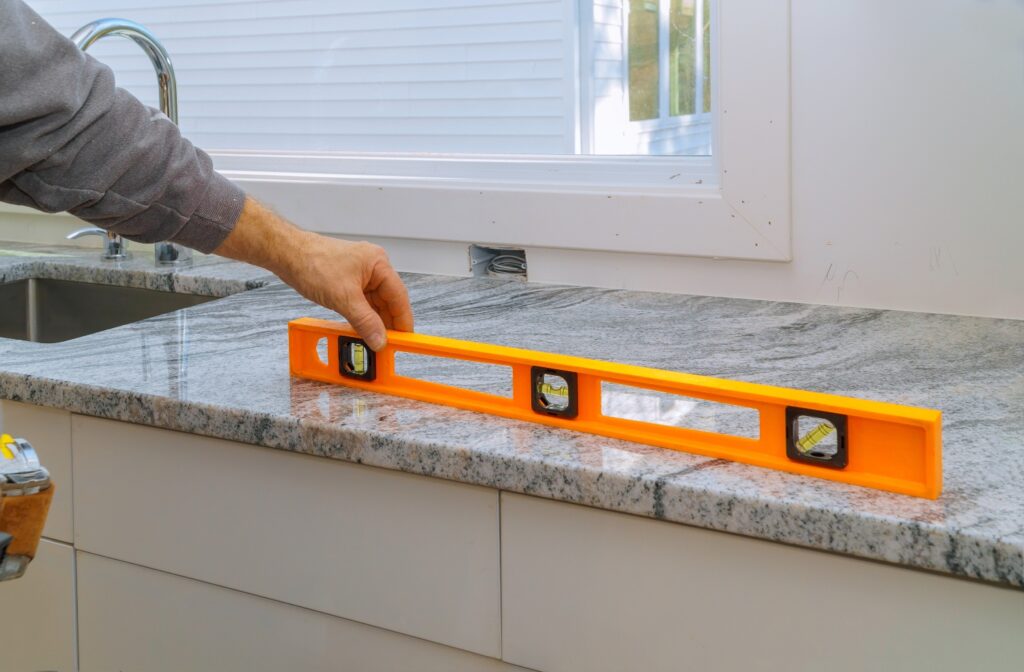Comprehensive Care Guide for Quartz Countertops

Quartz countertops are a stunning addition to any kitchen or bathroom, combining aesthetic appeal with remarkable durability. To ensure these surfaces remain in excellent condition, it’s essential to implement effective cleaning and maintenance strategies. This guide offers practical advice on how to keep your quartz surfaces looking pristine, along with recommended products and common pitfalls to avoid.
Why Cleaning Quartz Countertops is Important
- Impact on aesthetics Regular cleaning not only preserves the beautiful appearance of quartz countertops but also prevents dullness caused by the buildup of grime, food particles, or soap residue. Clean countertops will shine and maintain their sleek, polished look.
- Longevity and durability of quartz While quartz is incredibly durable, it requires proper care to ensure its longevity. Consistent cleaning prevents surface damage and wear over time, helping the countertop last for years without needing repair or replacement.
- Health benefits of keeping quartz countertops clean A clean quartz countertop contributes to a healthier home environment. Since quartz is non-porous, it doesn’t harbor bacteria like porous surfaces might, but maintaining cleanliness reduces the risk of contamination from food preparation.
Effortless Daily Upkeep
Maintaining the beauty of your quartz countertops daily is a breeze. Here’s a quick and effective routine to keep them looking their best: Start by using warm water and a gentle cloth or sponge to wipe down the surface. Gently rub away any crumbs or spills for a clean finish. For extra cleaning power, add a few drops of mild dish soap to the water. This will help you achieve that perfect shine without damaging your quartz surfaces.
Materials Needed for Cleaning Quartz Countertops
Basic cleaning supplies For everyday cleaning, all you need are a soft cloth or sponge, warm water, and a mild dish detergent. These basic supplies are sufficient to keep your countertops looking great.
Gentle cleaners for everyday maintenance While soap and water are effective, you can also opt for specially formulated quartz cleaners that are gentle on the surface. Avoid products that contain harsh chemicals or abrasive ingredients.
Deep cleaning essentials For deeper cleaning sessions, you might need rubbing alcohol, a non-abrasive scrubbing pad, or a specialized quartz cleaner. Ensure you have microfiber cloths on hand to dry the surface, as these prevent streaking.
Recommended Cleaning Solutions
While quartz is generally resistant to stains, selecting the right cleaning agents is crucial to avoid damaging the surface. Here’s a list of effective products to consider:
Disinfecting Quartz Countertops: What to Use
Safe disinfectants for quartz You can safely disinfect quartz countertops using rubbing alcohol or a mild antibacterial cleaner that does not contain bleach. Spray the surface lightly and wipe it down with a soft cloth.
DIY disinfecting solutions for quartz countertops A simple homemade disinfectant can be made by mixing equal parts rubbing alcohol and water. Add a few drops of dish soap, spray the mixture, and wipe the surface clean.
How often should you disinfect quartz? It’s recommended to disinfect quartz countertops once a week or after heavy food preparation, particularly if handling raw meat or poultry.
How to Remove Stains from Quartz Countertops
Identifying common stains: oil, juice, and more Quartz is resistant to most stains, but oils, coffee, wine, and certain juices can occasionally leave marks. These should be cleaned immediately to avoid setting.
Best cleaning solutions for stains To remove stubborn stains, use a non-abrasive cleaner or a mixture of baking soda and water to form a paste. Let it sit on the stain for a few minutes, then gently scrub and wipe clean.
Avoiding abrasive scrubbers and harsh chemicals Harsh chemicals like bleach or abrasive scrubbers can permanently damage quartz countertops. Always use soft cloths and non-toxic, gentle cleaners.
Common Mistakes to Avoid
To keep your quartz surfaces in optimal condition, it’s important to avoid these frequent cleaning errors:
- Abrasive Cleaners: Avoid scouring pads and harsh chemicals that can scratch the surface.
- Ignoring Spills: Promptly clean up spills, especially from acidic substances like coffee or tea, to prevent discoloration.
- Using Highly Acidic Cleaners: Stay away from bleach, undiluted vinegar, and oven cleaners, as these can damage the resin in quartz.
Step-by-Step Guide: How to Clean Quartz Countertops
- Removing debris and crumbs: Start by clearing the countertop of any large debris or crumbs. A simple wipe with a dry cloth will suffice.
- Wiping with a damp cloth: Using a soft, damp cloth, gently wipe the surface to remove any stuck-on dirt or food residue.
- Applying a mild detergent or quartz cleaner: Mix a few drops of mild dish soap in warm water or use a quartz-specific cleaner. Wipe the surface with this mixture to clean it thoroughly.
- Drying the surface for a streak-free finish: Once clean, dry the countertop with a microfiber cloth to prevent watermarks and ensure a streak-free finish.
Expert Tips for Deep Cleaning
For those occasions when your countertops require a more thorough cleaning, consider these expert recommendations:
- Stubborn Stains: For tougher stains, create a paste of baking soda and water, apply it to the stain, and let it sit for 10-15 minutes before wiping it away.
- Disinfecting: To disinfect, use a mixture of isopropyl alcohol and water in a spray bottle. Spray the surface and wipe it down with a clean cloth.
- Regular Maintenance: Schedule a deep clean every few months to maintain the surface’s integrity and shine.
Understanding Quartz Countertops
Before diving into specific cleaning techniques, it’s essential to understand what quartz countertops are made of and their unique properties. Quartz is an engineered stone, composed of about 90-95% crushed natural quartz crystals mixed with resins and pigments. This composition gives quartz its durability and non-porous nature, making it resistant to stains and bacteria.
Pros and Cons of Quartz Countertops
| Pros | Cons |
| Highly durable and scratch-resistant | Can be damaged by excessive heat |
| Non-porous, making it resistant to stains | Limited color and pattern options compared to natural stone |
| Low maintenance and easy-to-clean | Can be more expensive than other countertop materials |
| Available in a wide range of colors and finishes | May require professional installation |
Cleaning Frequency Recommendations
To maintain the appearance and longevity of your quartz countertops, consider the following cleaning frequency guidelines:
| Task | Frequency |
| Daily Wipe Down | Every day |
| Deep Cleaning | Every 1-3 months |
| Stain Treatment | As needed |
| Professional Cleaning | Every 1-2 years |
Final Thoughts
Quartz countertops are a beautiful and practical choice for any home. By following the recommended cleaning practices and avoiding common mistakes, you can ensure that your surfaces remain in excellent condition for years to come. Remember, the key to maintaining quartz is consistency in care and using the right products. With the right approach, your quartz countertops will continue to enhance the beauty of your space while providing a durable and functional surface.
FAQs
Can I use bleach to clean my quartz countertops?
No, bleach and other highly acidic cleaners can damage the resin in quartz. Stick to mild dish soap and warm water for cleaning.
How do I remove tough stains from quartz?
For stubborn stains, create a paste of baking soda and water, apply it to the stain, and let it sit for 10-15 minutes before wiping it away.
Is it safe to put hot pots on quartz countertops?
While quartz is heat resistant, it’s best to use trivets or hot pads under hot pots and pans to prevent potential damage.
How often should I seal my quartz countertops?
Quartz countertops are non-porous and do not require sealing like natural stone surfaces. Regular cleaning is sufficient to maintain their appearance.
What can I use to disinfect quartz countertops?
You can use a mix of rubbing alcohol and water or a mild antibacterial cleaner that is safe for quartz surfaces.
How do I get rid of stubborn stains on quartz?
For stubborn stains, create a paste using baking soda and water. Apply it to the stain, let it sit for a few minutes, then gently scrub.
Can I use vinegar or lemon juice on quartz countertops?
No, vinegar and lemon juice are too acidic and can damage quartz surfaces over time. It’s best to stick with pH-neutral cleaners.
What is the best cleaner for quartz countertops?
A mild dish soap and water solution or a specially formulated quartz cleaner are ideal

Val Carvalho is a manager at Atlanta Stone Creations, with nearly two decades of experience in the stone and design industry. In addition to her leadership role, Val plays a key part in sales and design, bringing creativity, precision, and a strong sense of style to every project. Known for her warm and collaborative approach, she builds strong relationships with both her team and her clients. Val is passionate about delivering beautiful, high-quality results and creating an exceptional experience from start to finish.

